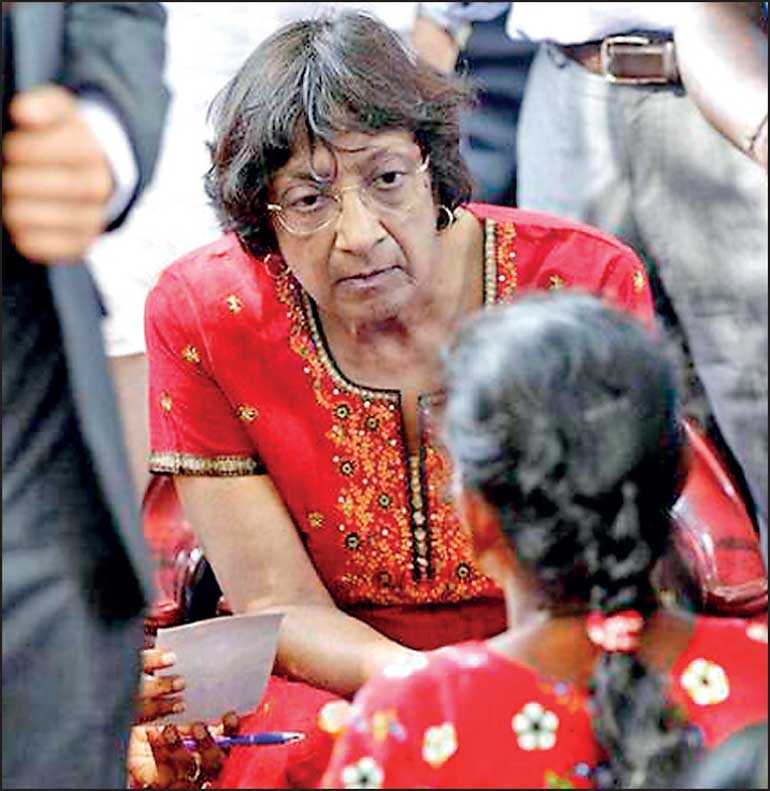Saturday Feb 21, 2026
Saturday Feb 21, 2026
Wednesday, 17 February 2021 00:00 - - {{hitsCtrl.values.hits}}
 Former UN Human Rights Chief Navi Pillay has joined a growing chorus of international experts calling on the Human Rights Council in Geneva to hold the Sri Lankan government to account over its failure to deliver justice and reconciliation 12 years after a brutal civil war.
Former UN Human Rights Chief Navi Pillay has joined a growing chorus of international experts calling on the Human Rights Council in Geneva to hold the Sri Lankan government to account over its failure to deliver justice and reconciliation 12 years after a brutal civil war.
Sri Lanka will feature of on the UN Human Rights Council Agenda when the 47-member body convenes its 46th Session on February 22.
“It is time for the Human Rights Council to make a drastic departure from its customary complacency over the failures of the Sri Lankan government and hold it to account for its non-compliance with UNHRC resolutions,” Pillay said, in an interview with Just Security Forum, days before the UNHRC meets in Geneva.
Her statement came as international criminal justice and human rights experts urged the UN to send a strong message on Sri Lanka to prevent a ‘pandemic of impunity’ from spreading across the world.
Pillay referenced a damning report on Sri Lanka’s accountability failures by her successor Michelle Bachelet, saying the 17-page report to the Council by the High Commissioner for Human Rights painted a graphic picture of a rapidly deteriorating human rights situation in Sri Lanka. Bachelet’s Sri Lanka report to the 46th Session of the UNHRC was the most damning by a UN Human Rights Chief yet. She called on UNHRC member states to consider targeted sanctions, asset freezes and travel bans against Sri Lankan officials accused of violating international humanitarian law.
In her Just Security forum interview, Pillay acknowledged that High Commissioner Bachelet had raised the alarm about the risk of violence recurring in Sri Lanka and urged that the warnings be heeded. “The current report goes much further in detailing not just failures to act, but active obstruction by the government of any effort to secure justice and accountability,” the former UN Human Rights chief noted.
The former High Commissioner was scathingly critical of President Gotabaya Rajapaksa’s decision to pardon Army Sergeant Sunil Ratnayake, who was sentenced to death for the murder of eight civilians, including a five-year-old child in 2000. Ratnayake was the only perpetrator to be convicted for war time abuses, Pillay said, adding that President Rajapaksa had pardoned Ratnayake in “willful defiance of international law against impunity.”
“Gota’s war against terrorism must not be allowed to become war against the rule of law and International standards of conduct towards defeated peoples,” the former UN envoy said.
As High Commissioner for Human Rights, Pillay has locked horns with the Government under President Mahinda Rajapaksa, when, like Bachelet she was urging the 47 member states of UNHRC to act on accountability failures in Sri Lanka that could lead to a recurrence of violence and conflict. Pre-2015. Government officials ridiculed Pillay and accused her of being a LTTE sympathiser because the South African UN High Commissioner was of Tamil descent.